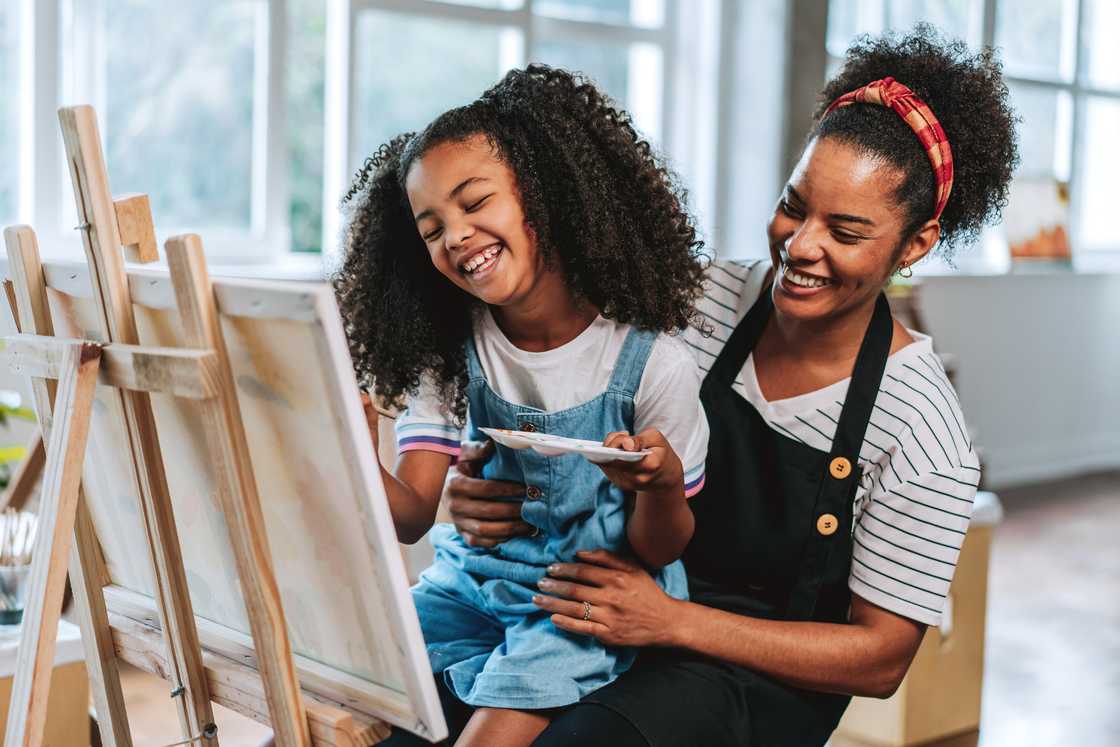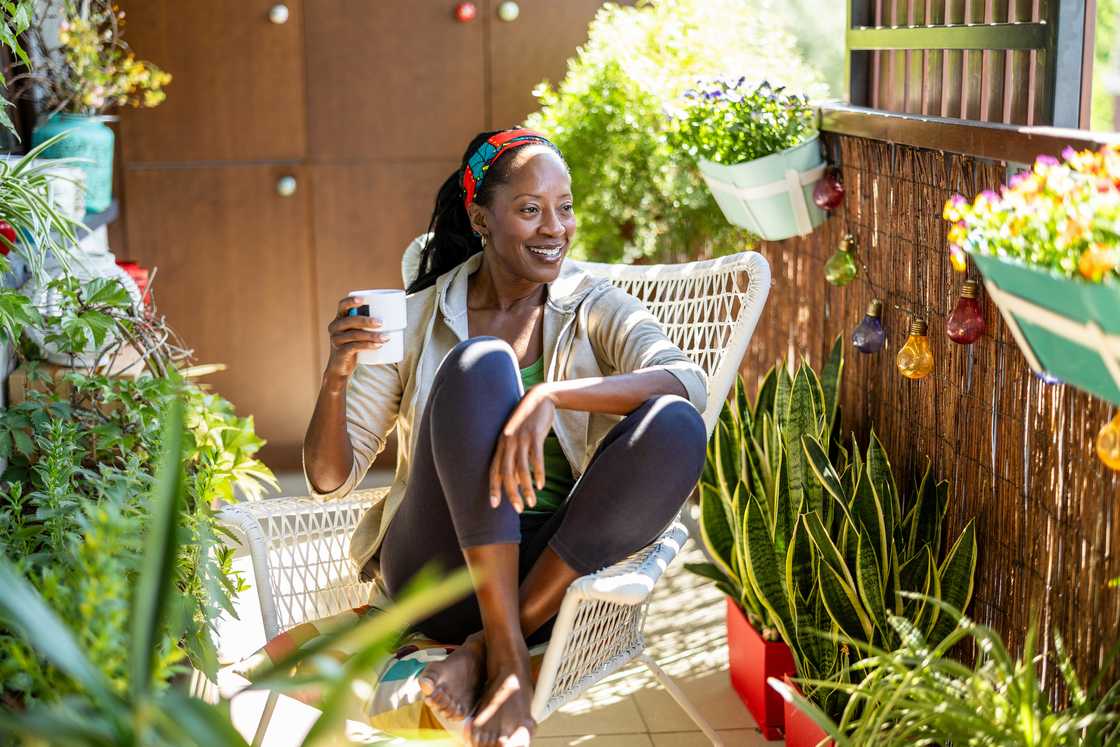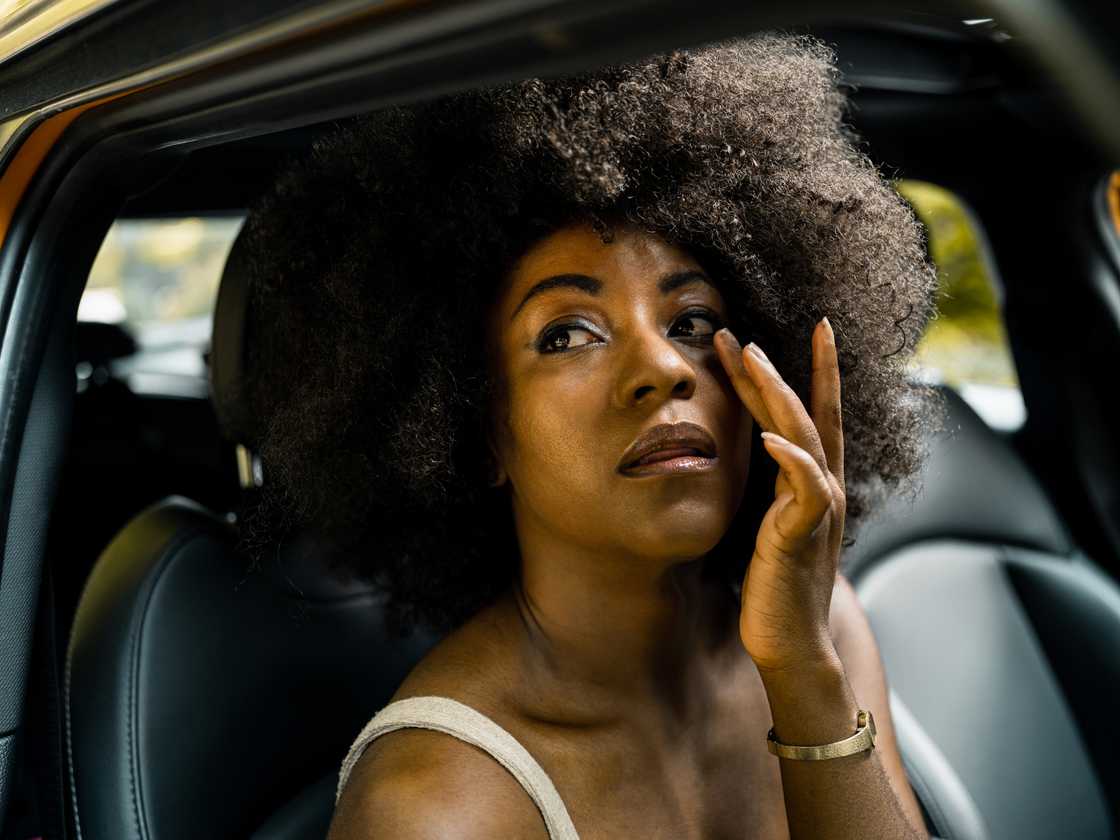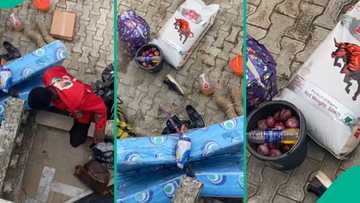Her Primary-4 Slip Went Viral — Parent Forum Held; “Offline Wins” Replaces TikTok Praise
My phone would not stop vibrating. Notifications stacked like rain, and comments poured in faster than I could read them. I opened TikTok and froze. My daughter's Primary 4 result slip, the one I posted the night before, was everywhere—her name, grades, and teacher's remark, all blown across a million screens.

Source: Getty Images
Someone had stitched my video with laughing emojis. Another called me "mother of the year turned clout chaser." Some said I was inspirational, others said I had failed my child. I scrolled, shaking.
Then I saw Amara's face trending in a meme. Someone zoomed into her name and captioned, "When your mom wants likes more than your peace."
That was when my heart broke.
I had thought sharing her progress would make her proud. Instead, I made her public.
By morning, her school's phone line was ringing off the hook, and I was staring at my reflection, wondering how a simple post became a storm.

Source: Getty Images
Before all this, my life was simple and noisy in the usual Lagos way.
I was a 35-year-old working mother juggling spreadsheets by day and homework by night.
My husband, Chuka, worked in construction and came home with dust on his boots and stories about traffic.
Amara was our only child, a curious nine-year-old with a round face and deep dimples. She loved colouring books and plantain chips. Every evening after school, she would dance in front of the living room mirror while I recorded her for our small family TikTok page.
It started harmlessly. We would post her art projects, baking experiments, and spelling-bee recitations. People loved her energy, and our page grew to a few thousand followers.

Source: Getty Images
One Saturday, I took her to the local art fair at Yaba. We spent the afternoon painting under a tent where the air smelled of puff-puff and acrylic. A photographer asked if he could take a picture of us, and later, the image appeared on a parenting blog with the caption, "Mother-daughter creativity goals."

Read also
UK-Based Nigerian woman accuses authorities of negligence as leaking ceiling falls on son’s head
That small spotlight lit something in me. For the first time, I felt seen not just as a mother but as a woman doing something right. That feeling stayed.
The internet applause felt good. It was addictive.
Then exam season came. Amara was nervous; her school report had dipped last term, and I wanted to encourage her. She worked hard this time, often falling asleep over her math workbook. When her result came out, I was proud.
She had moved from 54% in Math to 70%. Her teacher had written, "Improving. Needs confidence."

Source: Getty Images
I remember sitting on the balcony that evening as the generators hummed through the neighbourhood. The harmattan wind carried sounds of children playing football in the street, their laughter echoing.
I thought about my mother, who used to pin my report cards on our sitting room wall for visitors to see. It was her way of celebrating me. I told myself my post was the modern version of that same love — just digital, not paper. I didn't realise the world was far bigger than our sitting room.

Read also
He Vanished The Day After I kept The Baby — Two Years Later He Arrives as My Sister’s Boyfriend
To me, it was a victory.
That night, after cooking dinner, I laid the slip on our dining table, placed a cup of tea beside it, and filmed it under warm light. I captioned it, "From 54% to 70%. Proud of my girl! Progress, not perfection."
I thought it was a sweet post. Something other moms could relate to.
Then I slept.
By morning, my phone had become a stranger.

Source: Getty Images
The first call came from my sister, Ada.
"Chioma, have you seen what's happening on TikTok?"
Her voice was tight, like she was holding her breath.
I laughed, thinking she was teasing. "What, the video?"
"It's everywhere. They are dragging you."
I opened the app again. The numbers made my stomach twist. Overnight, there were a million views, and the comments section was a battlefield.
"Why would you post your child's result slip with her name visible?"
"Some parents just want validation."
"This is why kids grow up anxious."
"She's trying her best, ma. Let her breathe."
Some defended me. Others shredded me.
I saw strangers analysing Amara's grades like a national debate. Some mocked her handwriting, and others guessed what school she attended.
At lunchtime, my husband called.
"Chioma, delete the video," he said firmly.
"But people are just misunderstanding. I meant to celebrate her."
"It's not about what you meant. Her name is out there. Her teacher's remark, too."

Source: Getty Images
I hesitated. "She'll be fine. Kids don't use TikTok that much."
He sighed. "It's not kids I'm worried about. It's adults who don't forget."
That evening, Amara came home quiet. Usually, she would drop her backpack and run to me, but that day she just looked tired.
"Mummy, my friends saw my result online," she whispered.
I froze. "Who told you?"
"Chinelo showed me. They were laughing. She said my teacher wrote that I'm not confident."
Her eyes watered.
"Baby, you did so well," I said, pulling her close.
She shook her head. "Then why did everyone laugh?"
That night, she wouldn't eat. I scrolled through comments again, seeing strangers psychoanalyse her. Some tagged parenting blogs. Others used her result as a "case study."
One man wrote, "I pray this child doesn't grow up hating herself for being content."

Source: UGC
I deleted the video at 11:47 p.m. My fingers trembled as I pressed "Remove."
But it was too late.
People had already downloaded it. It lived on in reactions, stitches, and duets.
The next morning, the school called me in.
The principal, Mrs Bamidele, sat behind her polished desk. Her voice was calm but disappointed.
"Mrs Okafor, we value your enthusiasm as a parent, but this is serious. The slip you posted contains confidential information."
I nodded, ashamed.
"We're sending a privacy advisory to all parents. Children's academic details should not appear online."
I mumbled an apology, feeling like a child myself.
On my way home, my phone buzzed with a new notification. A viral education influencer had posted a reaction video titled 'When Parents Overshare: The Harm of Public Praise.'

Read also
She Walked Out of Handover in Tears — He Called Her Back, Fixed the Remark, and Drew a Plan
It used Amara's video as an example.
I pulled over by a roadside suya stand and cried inside the car.

Source: Getty Images
How did love turn into humiliation?
A few days later, something unexpected happened.
Dr Tayo, one of Nigeria's most prominent education advocates, posted his TikTok.
But instead of shaming me, he explained.
He said, "Parents mean well when they share, but remarks like 'needs confidence' are personal. When a child's private journey becomes public, it can shape her belief about her worth."
He called it "the invisible bruise of public validation."
The tone of the conversation began to change.
People who had mocked me started to reflect. Some mothers commented that they, too, had once posted their children's reports or certificates online without thinking about the implications.
That weekend, my inbox filled with private messages from other mothers. Some said they had deleted their own old posts. One woman confessed that her teenage son begged her to stop tagging him in every achievement photo because it made him anxious.

Source: Getty Images
I read their stories and realised I was not alone. The guilt I carried began to loosen its grip. We were all just trying to do right by our children, even when the world was watching.
Dr Tayo ended his video by saying, "We must teach our children to value effort privately, not for applause. To that mother out there, it's not too late to make things right offline."
He didn't mention my name, but everyone knew.
That night, my husband held my hand across the couch.
"You can still fix this, Chioma," he said gently.
So I started small. I apologised to Amara first.
"I shouldn't have posted your result," I told her. "I was proud, but I didn't protect your peace."
She looked at me quietly, then asked, "Can I show you something instead?"
She ran to her room and brought a notebook. On the first page, she had drawn herself climbing a mountain with the words, 'I can do it slowly.'

Read also
She Meets Him at the Bagels — He Installs Spyware; She Finds a Studio and Reclaims Her Life

Source: Getty Images
My eyes filled with tears.
She smiled softly. "Maybe next time, you can keep my progress here."
I realised she didn't need the world's applause. She just needed mine.
Our school organised a parent meeting the following week. Mrs Bamidele invited Dr Tayo to speak about digital boundaries.
He spoke about "the dignity of childhood" and how sharing can harm even when intentions are pure.
When he finished, he asked his parents to create "private praise walls" at home instead of posting online.
I went home and turned Amara's living room corner into one. We decorated it with colourful paper stars, sticky notes, and small Polaroids of her artwork. Each star carried a word: "Effort." "Courage." "Kindness."
We made it our ritual. Whenever Amara achieved something, no matter how small, we added it to the wall.

Source: Getty Images
The first note said, "For doing your best in Math without giving up."

Read also
"She Failed the Test," Someone Whispers — Baby Kept in Nursery; Lab Memo Clears Her for Skin-to-Skin
Amara wrote back, "For mummy, who deleted the video and said sorry."
That evening, as we stood together looking at the wall, she turned to me and said, "Mummy, can we add one for forgiveness?" I nodded, fighting tears, and handed her a golden sticker.
She wrote the word carefully, in her slightly tilted handwriting. It glittered against the others, catching the soft light from our table lamp. More than any like or comment, that single word reminded me what healing truly looked like — gentle, private, and earned.
The following month, during morning assembly, the school introduced a new project called "Offline Wins." Children were encouraged to bring scrapbook pages showing their progress at home.

Source: Getty Images
When Amara's turn came, she carried her scrapbook to the stage. Inside were hand-drawn hearts, kind notes from her classmates, and my own letter saying, "You are more than numbers."
She read it aloud. The hall was silent, then everyone clapped.
After assembly, her teacher approached me and said, "You turned a mistake into a message. Thank you."
Later that day, I received an email from the influencer who had initially criticised me. He apologised publicly, admitting he had been too harsh.
He wrote, "Behind every viral clip is a human being trying their best."
The apology did not undo the past, but it softened the edges.
We stopped posting family moments online. Instead, we filled our offline scrapbook with pictures of Amara's garden experiments, her science fair sticker, and her new friendship bracelet collection.
Each page smelled faintly of glue and colored paper, not likes or shares.

Source: Getty Images
By Christmas, Amara's confidence had bloomed.
During carol night, she stood on stage, microphone in hand, and sang "Silent Night" without hesitation. I watched her from the crowd, tears glistening.
When she finished, she looked at me and smiled, that same dimpled smile that once faced a million strangers, now glowing under soft yellow light.
This time, only those who loved her saw it.
I learned that not every proud moment deserves an audience.
Sometimes, the purest kind of pride is quiet. It lives in the space between a parent's heart and a child's growing courage.
Social media rewards visibility, but parenting rewards presence. I was chasing likes when I already had love in my living room.

Source: Getty Images
I used to think I was showing Amara to the world. Now I know I was exposing her before she was ready to be seen.
The internet forgets trends, but children remember how we made them feel.
I see proof that healing can happen without hashtags whenever I look at her private praise wall.
Amara still loves drawing, still sings around the house, and sometimes she even asks, "Mummy, can I post this?" I always smile and say, "Let's keep this one just for us."
There's peace in keeping some wins off-screen.
And maybe that's the real test of modern love — not how much we share, but how much we protect.
So I ask myself, and every parent reading this: If your child's moment of pride depended on your silence, would you still celebrate them?
Because I would. Now... and always.
This story is inspired by the real experiences of our readers. We believe that every story carries a lesson that can bring light to others. To protect everyone’s privacy, our editors may change names, locations, and certain details while keeping the heart of the story true. Images are for illustration only. If you’d like to share your own experience, please contact us via email.
Source: YEN.com.gh







